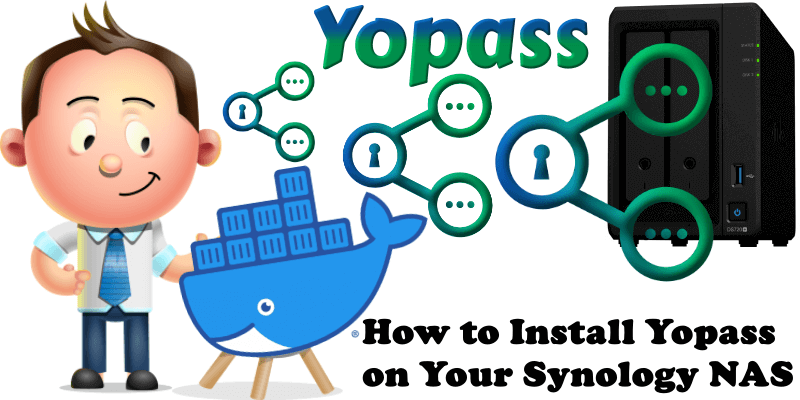
Yopass is a project for sharing secrets in a quick and secure manner, similar to Password Pusher and Private Bin. The sole purpose of Yopass is to minimize the amount of passwords floating around in ticket management systems, Slack messages and emails. The message is encrypted/decrypted locally in the browser and then sent to Yopass without the decryption key which is only visible once during encryption; Yopass then returns a one-time URL with a specified expiry date. Yopass is designed to be as simple and “dumb” as possible without compromising on security. In this step by step guide I will show you how to install Yopass on your Synology NAS using Docker and Portainer.
This guide works perfectly with the latest Yopass v12.5.0 release.
STEP 1
Please Support My work by Making a Donation.
STEP 2
Install Portainer using my step by step guide. If you already have Portainer installed on your Synology NAS, skip this STEP. Attention: Make sure you have installed the latest Portainer version.
STEP 3
Make sure you have a synology.me Wildcard Certificate. Follow my guide to get a Wildcard Certificate. If you already have a synology.me Wildcard certificate, skip this STEP.
STEP 4
Go to Control Panel / Login Portal / Advanced Tab / click Reverse Proxy. Follow the instructions in the image below.
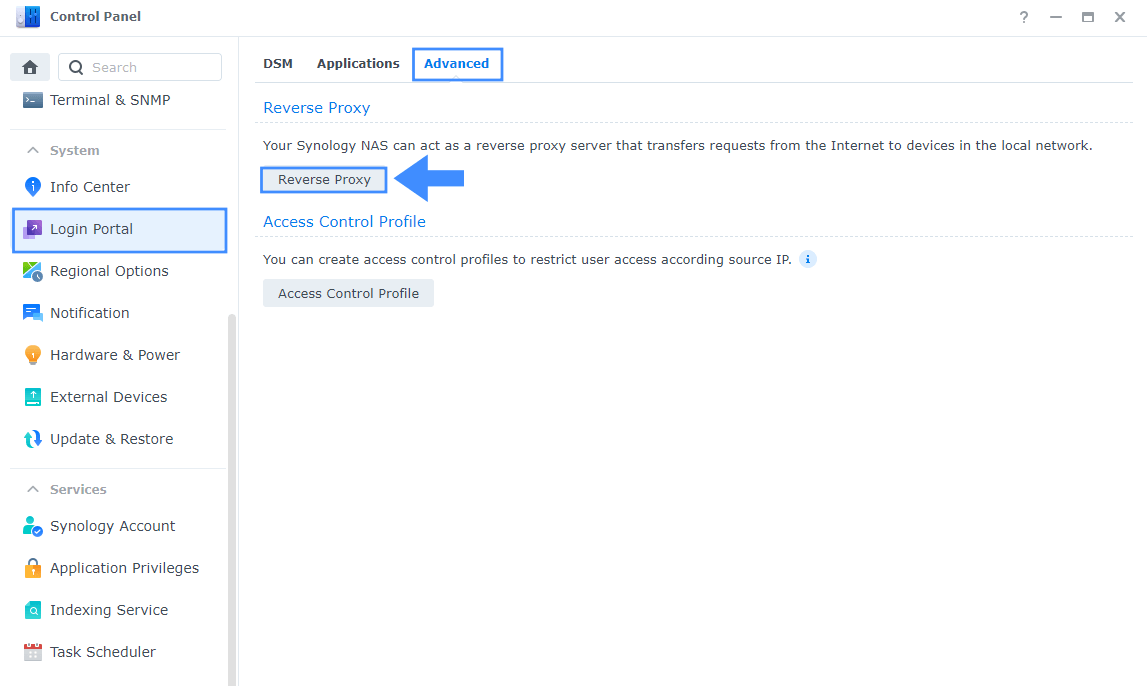
STEP 5
Now click the “Create” button. Follow the instructions in the image below.
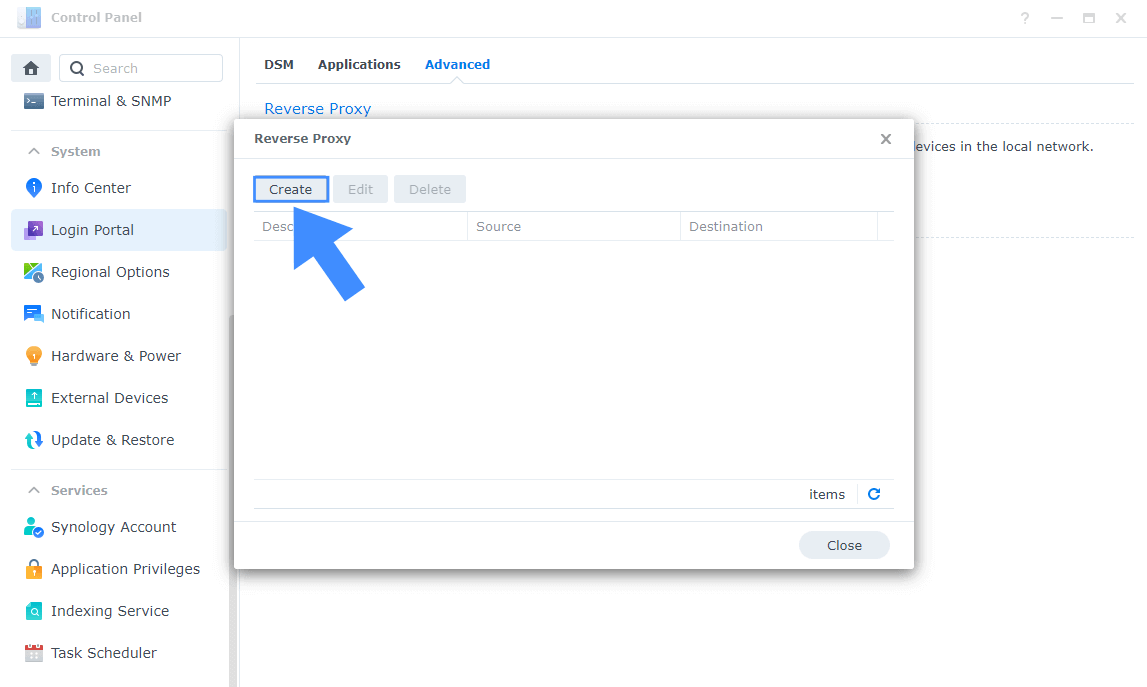
STEP 6
After you click the Create button, the window below will open. Follow the instructions in the image below.
On the General area, set the Reverse Proxy Name description: type in Yopass. After that, add the following instructions:
Source:
Protocol: HTTPS
Hostname: yopass.yourname.synology.me
Port: 443
Check Enable HSTS
Destination:
Protocol: HTTP
Hostname: localhost
Port: 1338
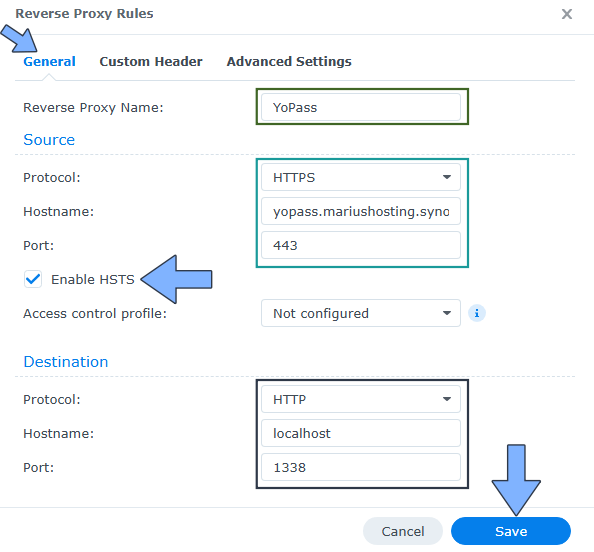
STEP 7
On the Reverse Proxy Rules click the Custom Header tab. Click Create and then, from the drop-down menu, click WebSocket. After you click on WebSocket, two Header Names and two Values will be automatically added. Click Save. Follow the instructions in the image below.

STEP 8
Go to Control Panel / Network / Connectivity tab/ Check Enable HTTP/2 then click Apply. Follow the instructions in the image below.
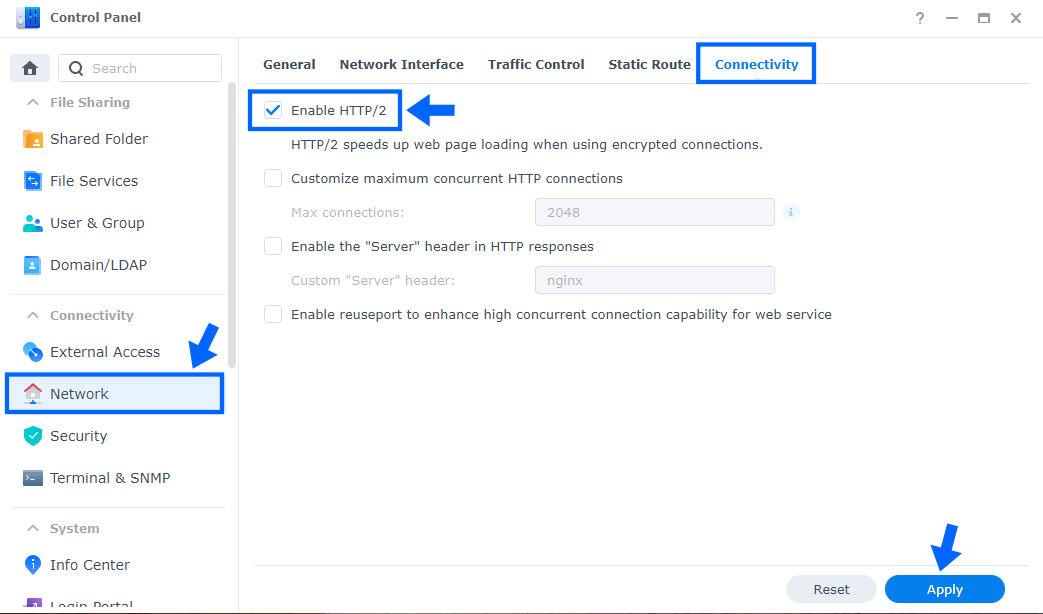
STEP 9
Go to Control Panel / Security / Advanced tab/ Check Enable HTTP Compression then click Apply. Follow the instructions in the image below.
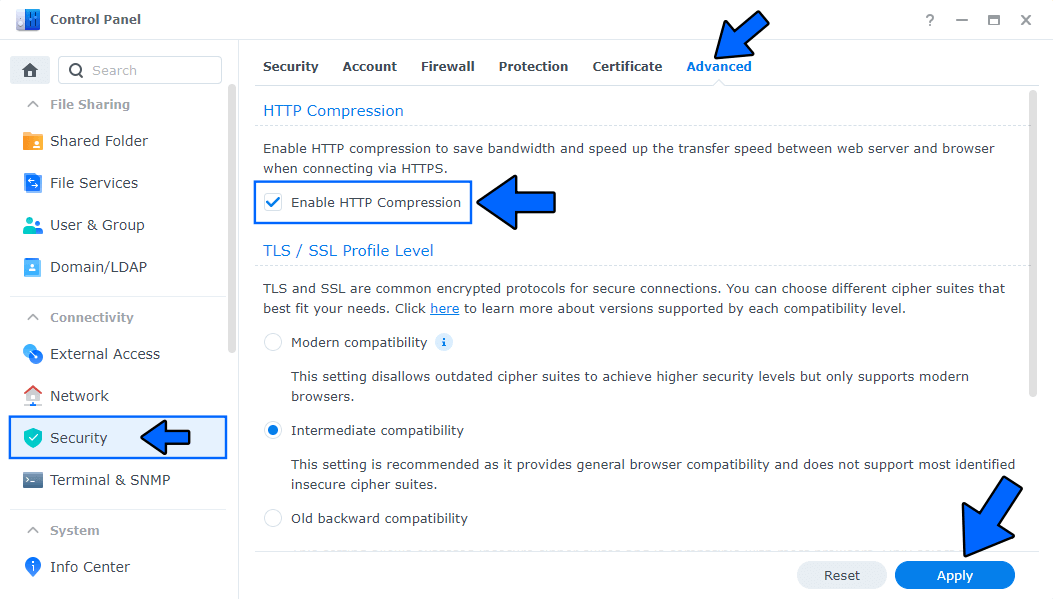
STEP 10
Log into Portainer using your username and password. On the left sidebar in Portainer, click on Home then Live connect. Follow the instructions in the image below.

On the left sidebar in Portainer, click on Stacks then + Add stack. Follow the instructions in the image below.

STEP 11
In the Name field type in yopass. Follow the instructions in the image below.
services:
memcached:
image: memcached:alpine
container_name: YoPass-Memcached
user: 1026:100
restart: on-failure:5
expose:
- 11211
yopass:
image: jhaals/yopass
container_name: YoPass
environment:
TRUSTED_PROXIES: https://yopass.yourname.synology.me
security_opt:
- no-new-privileges:true
read_only: true
user: 0:0
ports:
- 1338:1337
command: --memcached=memcached:11211
depends_on:
- memcached
Note: Before you paste the code above in the Web editor area below, change the value for TRUSTED_PROXIES and type in your own synology.me DDNS with https:// at the beginning that you have previously created at STEP 6.

STEP 12
Scroll down on the page until you see a button named Deploy the stack. Click on it. Follow the instructions in the image below. The installation process can take up to a few minutes. It will depend on your Internet speed connection.
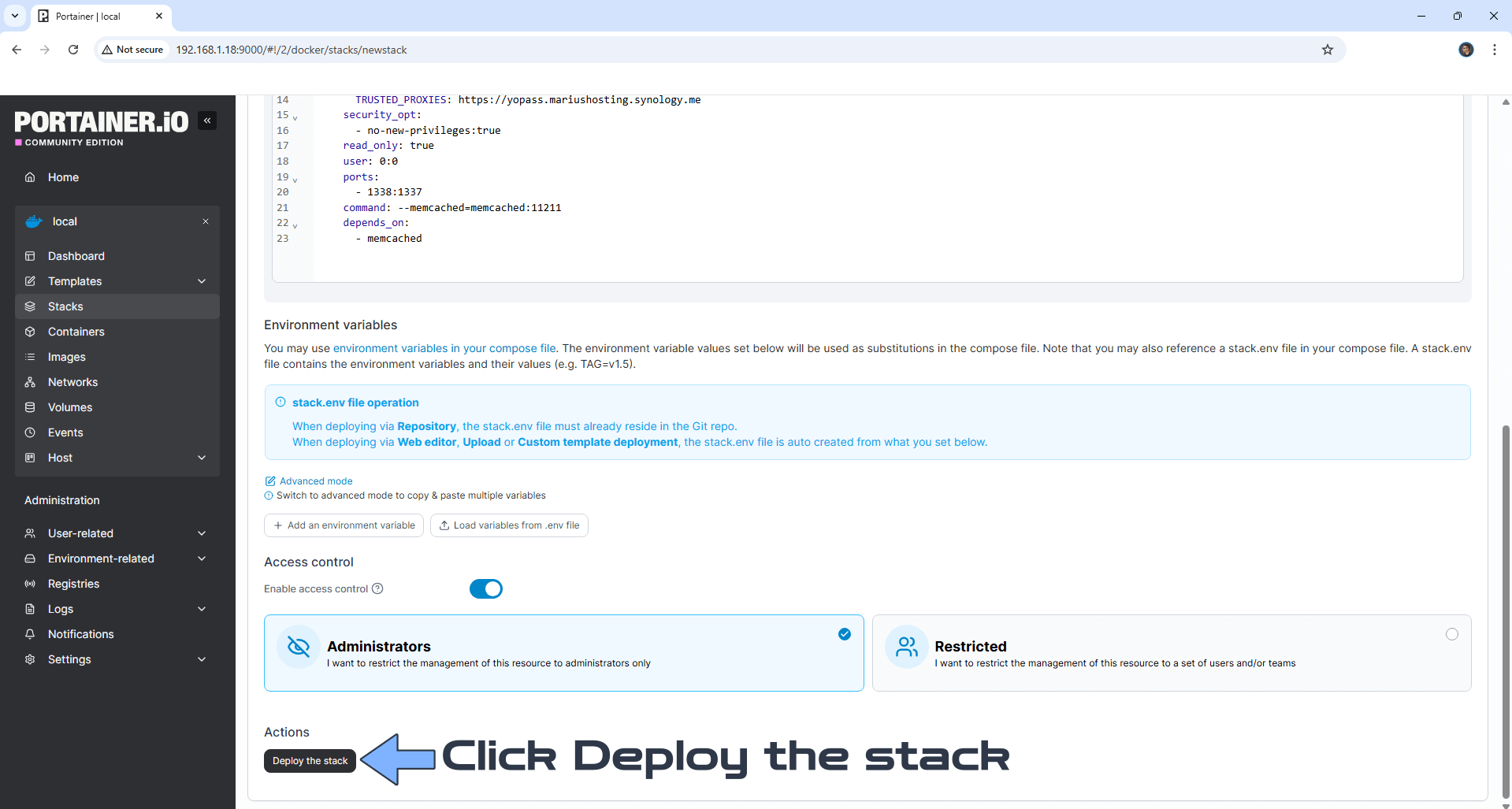
STEP 13
If everything goes right, you will see the following message at the top right of your screen: “Success Stack successfully deployed“.

STEP 14
🟢Please Support My work by Making a Donation. Almost 99,9% of the people that install something using my guides forget to support my work, or just ignore STEP 1. I’ve been very honest about this aspect of my work since the beginning: I don’t run any ADS, I don’t require subscriptions, paid or otherwise, I don’t collect IPs, emails, and I don’t have any referral links from Amazon or other merchants. I also don’t have any POP-UPs or COOKIES. I have repeatedly been told over the years how much I have contributed to the community. It’s something I love doing and have been honest about my passion since the beginning. But I also Need The Community to Support me Back to be able to continue doing this work.
STEP 15
Now open your browser and type in your HTTPS/SSL certificate like this https://yopass.yourname.synology.me In my case it’s https://yopass.mariushosting.synology.me If everything goes right, you will see the Yopass page. Add message / password then click Encrypt Message. You can also switch the theme to Dark. Follow the instructions in the image below.
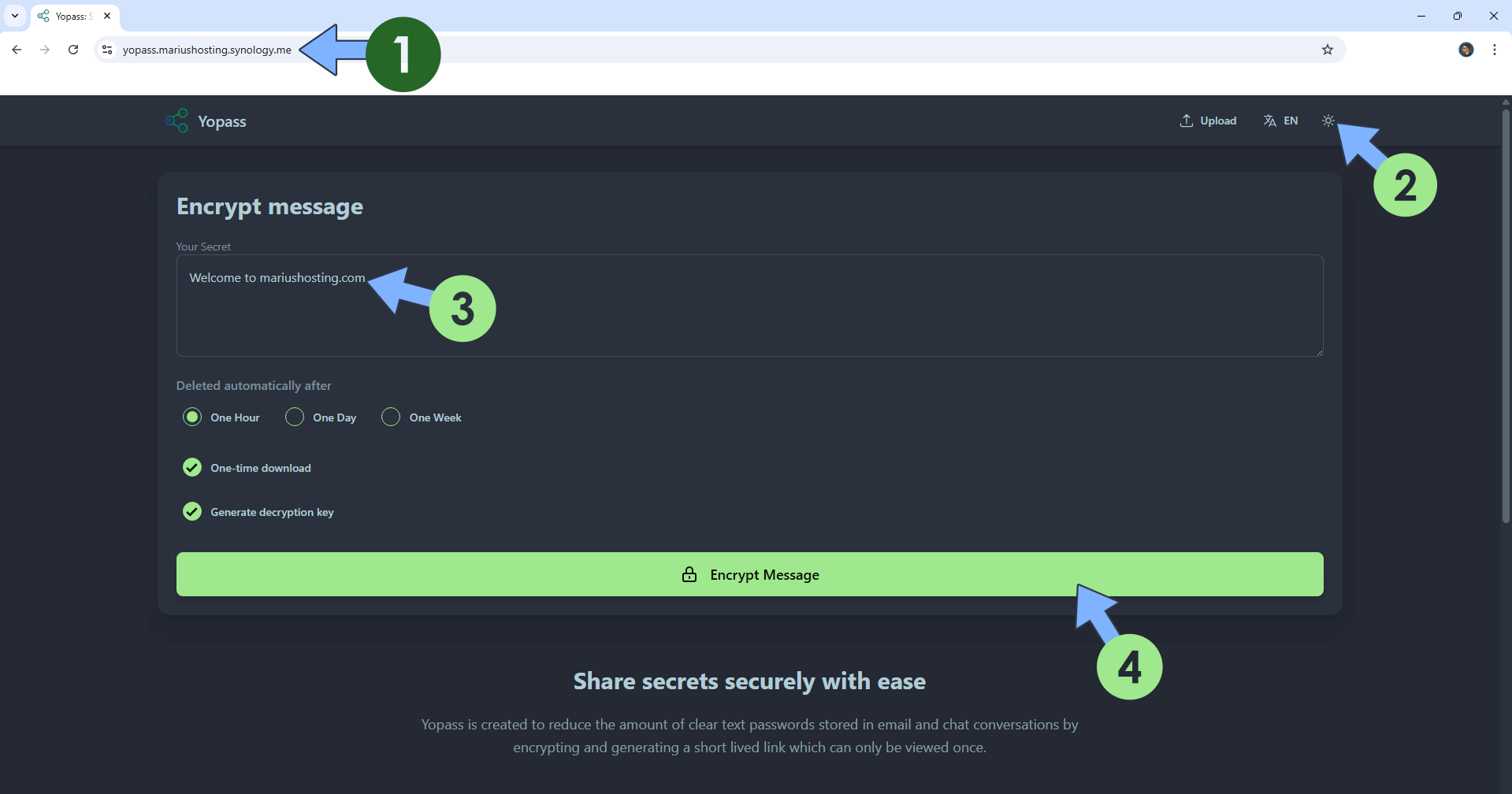
STEP 16
Share the secret link with someone. Follow the instructions in the image below.
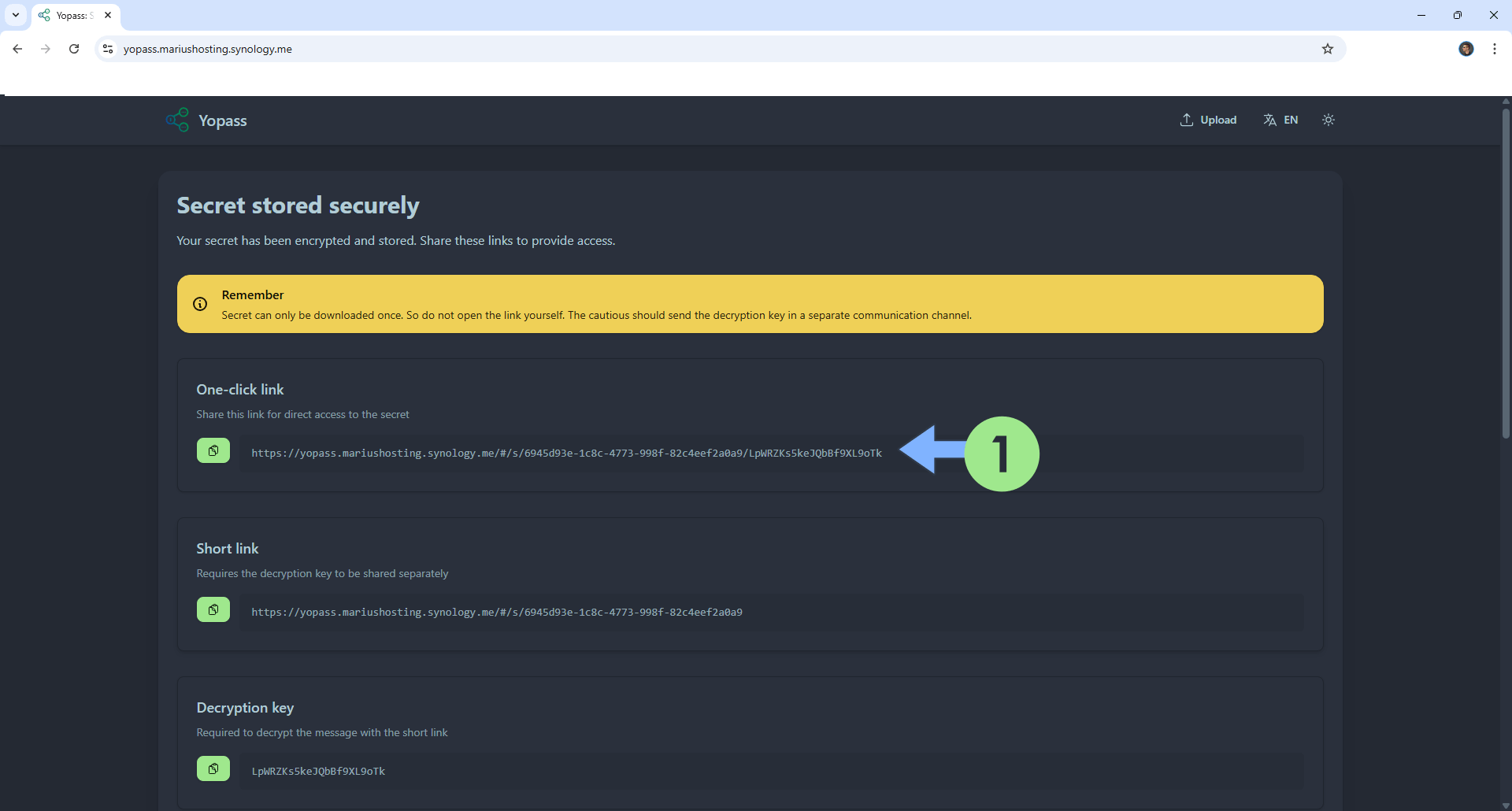
Enjoy Yopass!
If you encounter issues by using this container, make sure to check out the Common Docker issues article.
Note: Can I run Docker on my Synology NAS? See the supported models.
Note: How to Back Up Docker Containers on your Synology NAS.
Note: Find out how to update the Yopass container with the latest image.
Note: How to Free Disk Space on Your NAS if You Run Docker.
Note: How to Schedule Start & Stop For Docker Containers.
Note: How to Activate Email Notifications.
Note: How to Add Access Control Profile on Your NAS.
Note: How to Change Docker Containers Restart Policy.
Note: How to Use Docker Containers With VPN.
Note: Convert Docker Run Into Docker Compose.
Note: How to Clean Docker.
Note: How to Clean Docker Automatically.
Note: Best Practices When Using Docker and DDNS.
Note: Some Docker Containers Need WebSocket.
Note: Find out the Best NAS Models For Docker.
Note: Activate Gmail SMTP For Docker Containers.
This post was updated on Thursday / December 25th, 2025 at 10:26 AM
